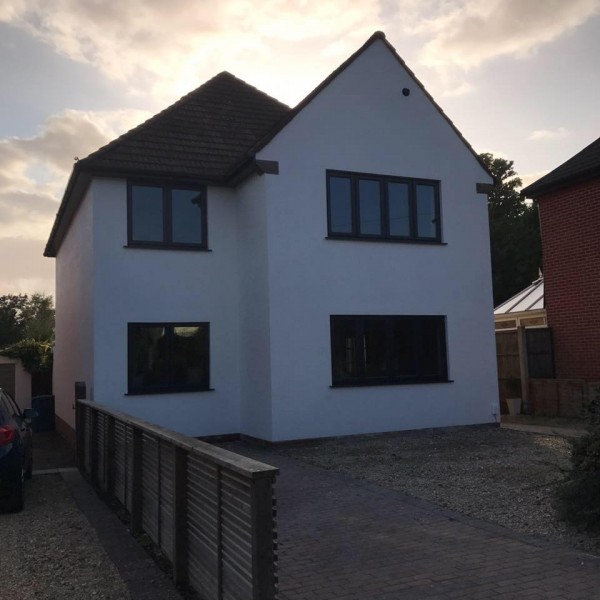Understanding Loft Conversions in Bournemouth
Loft conversions in Bournemouth have become a popular choice for homeowners seeking to maximise their living space without the hassle of moving. This charming coastal town offers a unique blend of urban and seaside living, making it an ideal location for expanding your home. In this article, we'll explore the ins and outs of loft conversions, providing you with all the information you need to make an informed decision.
What is a Loft Conversion?
A loft conversion is the process of transforming an unused attic space into a functional room. This can be anything from a bedroom, office, or playroom to a fully equipped apartment. Loft conversions are a fantastic way to add value to your home while increasing your living space.
Benefits of Loft Conversions
- Increased Living Space: Loft conversions provide additional space without altering the footprint of your home.
- Added Property Value: A well-executed loft conversion can significantly increase the value of your property.
- Cost-Effective: Compared to moving house, loft conversions are often more economical.
- Customisable: You can tailor the space to meet your specific needs and preferences.
Types of Loft Conversions
There are several types of loft conversions to consider, each with its own set of advantages and requirements. Understanding these options will help you choose the best fit for your home.
Dormer Loft Conversion
A dormer loft conversion involves extending the existing roof to create additional headroom and floor space. This type of conversion is popular due to its versatility and ability to accommodate various room layouts.
Mansard Loft Conversion
Mansard conversions are characterised by a flat roof and steeply sloping sides. They offer maximum space and are often used in terraced houses. However, they usually require planning permission due to the significant changes to the roof structure.
Hip to Gable Loft Conversion
This conversion is ideal for homes with a hipped roof. By extending the sloping side of the roof to create a vertical wall, you gain additional space. This type of conversion is particularly popular in semi-detached and detached houses.
Velux Loft Conversion
Velux conversions are the least invasive option, as they do not alter the roof structure. Instead, Velux windows are installed to provide natural light. This type of conversion is perfect for homes with sufficient headroom.
Planning Permission and Building Regulations
Before embarking on a loft conversion in Bournemouth, it's crucial to understand the planning permission and building regulations involved. While some conversions fall under permitted development rights, others may require formal approval.
When is Planning Permission Required?
Planning permission is typically required for mansard and hip to gable conversions due to the significant changes to the roof structure. However, dormer and Velux conversions often fall under permitted development, provided they meet specific criteria.
Building Regulations
Regardless of whether planning permission is needed, all loft conversions must comply with building regulations. These regulations ensure the safety and structural integrity of the conversion, covering aspects such as fire safety, insulation, and access.
Choosing a Loft Conversion Specialist in Bournemouth
Selecting the right specialist is crucial to the success of your loft conversion. Here are some tips to help you find a reliable and experienced professional in Bournemouth.
- Research: Look for specialists with a strong portfolio of completed projects and positive customer reviews.
- Experience: Choose a company with extensive experience in loft conversions, particularly in the Bournemouth area.
- Accreditations: Ensure the specialist is accredited by relevant industry bodies, such as the Federation of Master Builders.
- Quotes: Obtain multiple quotes to compare prices and services offered.
Cost of Loft Conversions in Bournemouth
The cost of a loft conversion can vary significantly depending on the type of conversion, the size of the space, and the materials used. On average, you can expect to pay between £20,000 and £50,000 for a standard conversion. However, more complex projects may exceed this range.
Factors Affecting Cost
- Type of Conversion: Mansard and hip to gable conversions are generally more expensive due to the structural changes involved.
- Size of the Loft: Larger spaces require more materials and labour, increasing the overall cost.
- Materials: The quality and type of materials used can significantly impact the cost.
- Additional Features: Features such as en-suite bathrooms or bespoke fittings will add to the cost.
Design Considerations for Loft Conversions
Designing your loft conversion is an exciting part of the process. Here are some key considerations to ensure your new space is both functional and aesthetically pleasing.
Maximising Natural Light
Natural light can transform a loft space, making it feel larger and more inviting. Consider installing large windows or skylights to maximise light exposure.
Optimising Space
Loft spaces often have unique shapes and angles. Use clever storage solutions and furniture placement to make the most of the available space.
Choosing the Right Colour Scheme
Light, neutral colours can make a small space feel larger and more open. Consider using a consistent colour scheme throughout the loft to create a cohesive look.
Common Challenges in Loft Conversions
While loft conversions offer numerous benefits, they can also present certain challenges. Being aware of these potential issues can help you plan effectively and avoid common pitfalls.
Structural Integrity
Ensuring the structural integrity of your home is paramount. This may involve reinforcing the floor or roof to support the additional weight of the conversion.
Access and Staircase Design
Creating a safe and practical access point to your loft is essential. Consider the placement and design of the staircase to ensure it complements the existing layout of your home.
Insulation and Ventilation
Proper insulation and ventilation are crucial for maintaining a comfortable temperature in your loft. This will also help prevent issues such as dampness and condensation.
Environmental Considerations
With growing awareness of environmental issues, many homeowners are seeking sustainable solutions for their loft conversions. Here are some eco-friendly options to consider.
Energy-Efficient Windows
Installing energy-efficient windows can help reduce heat loss and lower your energy bills. Look for windows with a high energy rating to maximise efficiency.
Sustainable Materials
Consider using sustainable materials, such as reclaimed wood or eco-friendly insulation, to minimise the environmental impact of your conversion.
Renewable Energy Sources
Incorporating renewable energy sources, such as solar panels, can further enhance the sustainability of your loft conversion.
Frequently Asked Questions
- Do I need planning permission for a loft conversion in Bournemouth? It depends on the type of conversion and the specific regulations in your area. Dormer and Velux conversions often fall under permitted development, while mansard and hip to gable conversions may require planning permission.
- How long does a loft conversion take? The duration of a loft conversion can vary depending on the complexity of the project. On average, it takes between 6 to 12 weeks to complete.
- Will a loft conversion add value to my home? Yes, a well-executed loft conversion can significantly increase the value of your property, often by up to 20%.
- Can I live in my home during the loft conversion? In most cases, you can continue to live in your home during the conversion, although there may be some disruption.
- What is the best type of loft conversion for my home? The best type of conversion depends on your specific needs, budget, and the existing structure of your home. Consulting with a specialist can help you determine the most suitable option.
- Are loft conversions energy efficient? With proper insulation and energy-efficient windows, loft conversions can be highly energy efficient, helping to reduce your overall energy consumption.
Loft conversions in Bournemouth offer a fantastic opportunity to enhance your living space and add value to your home. By understanding the different types of conversions, planning requirements, and design considerations, you can create a beautiful and functional space that meets your needs. With the right specialist and careful planning, your loft conversion can become a valuable addition to your home, providing you with the extra space you've always dreamed of.














